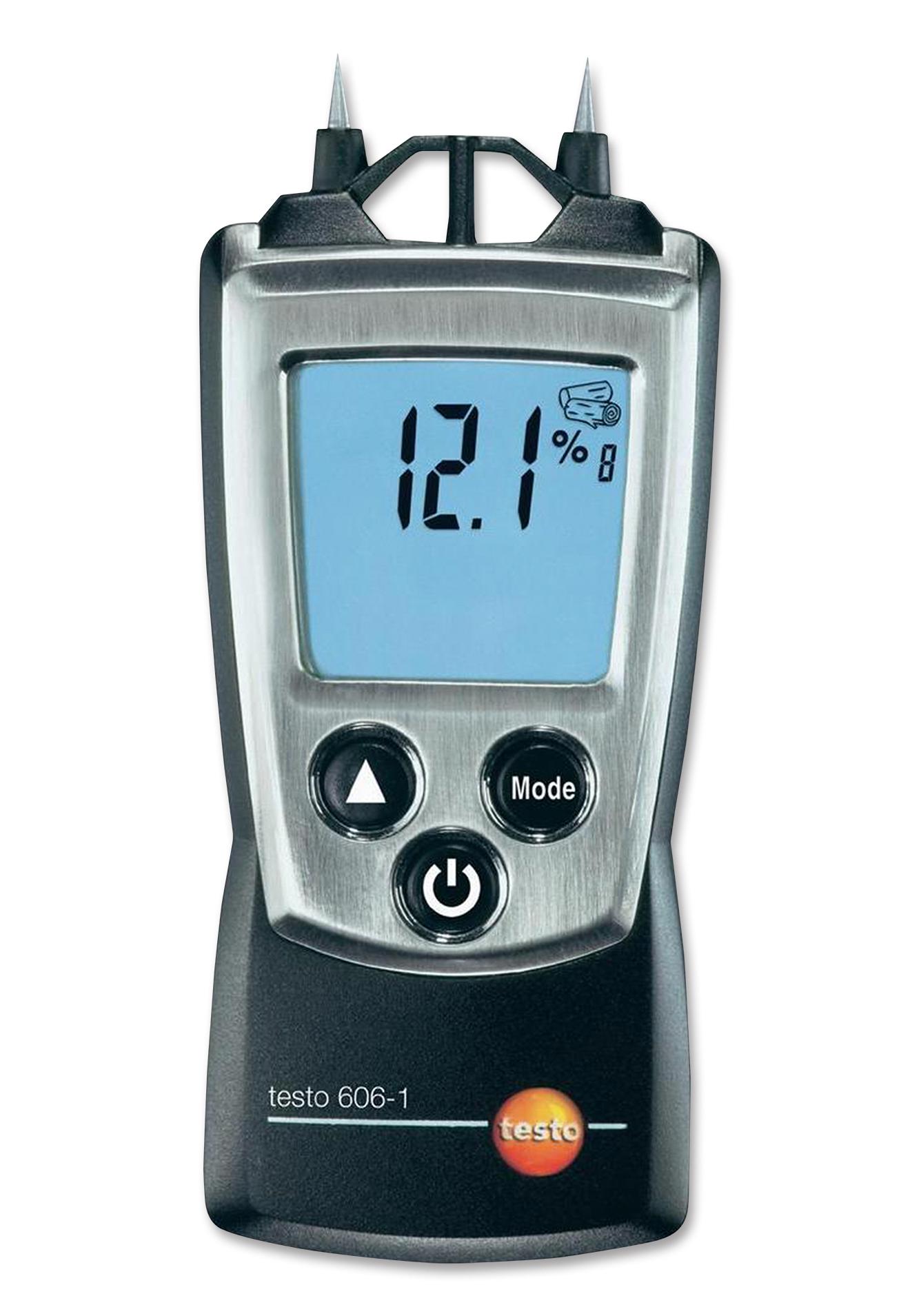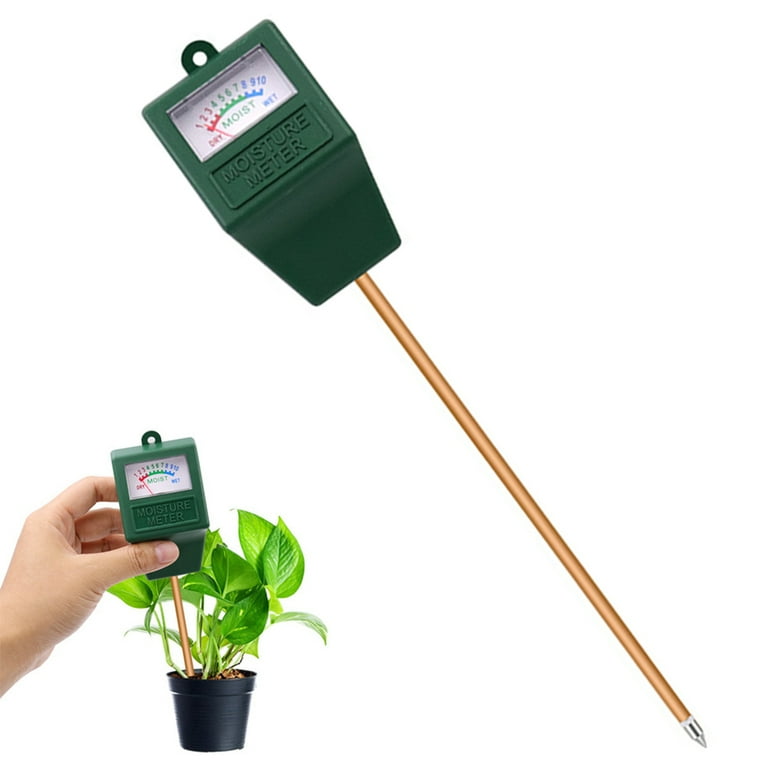The Ultimate Guide to Moisture Meters: A Comprehensive Introduction and Just How They Can Save You Cash
Moisture meters serve as vital devices in detecting and monitoring moisture content in materials, assisting in avoiding costly damages and ensuring the top quality of items. Comprehending the subtleties of different types of wetness meters, their applications, and the potential cost-saving benefits they supply can be a game-changer for businesses and experts alike.
Types of Wetness Meters
One usual type is the pin-type wetness meter, which measures the electric resistance in between 2 pins inserted into a product. Pinless wetness meters, on the various other hand, use electro-magnetic sensor plates to scan a larger location without triggering damages to the material's surface.

Moreover, there are additionally specialty wetness meters designed for particular materials like hay, grain, or soil. These meters provide accurate wetness analyses tailored to the unique residential or commercial properties of the material being examined. Infrared dampness meters gauge the thermal residential properties of a material to identify its moisture web content non-invasively, making them helpful for applications where pin or pinless meters might not be suitable. Understanding the different sorts of dampness meters readily available can aid industries pick the most suitable device for their particular moisture measurement demands.

Benefits of Utilizing Dampness Meters
Wetness meters offer indispensable benefits in properly keeping track of and examining dampness degrees in diverse materials and settings (Moisture Meter). One of the key advantages of using wetness meters is the avoidance of potential damages created by excess dampness. By spotting and resolving high dampness degrees beforehand, dampness meters help to stop mold development, rot, and architectural damages in structures, conserving both money and time on repairs. Additionally, moisture meters aid in making certain the high quality of materials throughout building or production processes. By precisely gauging moisture material, these devices assist maintain the integrity of timber, drywall, concrete, and other materials, decreasing the risk of defects or failures.
Moreover, making use of moisture meters can lead to boosted energy performance. By recognizing locations with high wetness degrees, such as leakages or bad insulation, changes can be made to boost energy preservation and lower energy prices. In agricultural setups, dampness meters play a crucial function in optimizing plant yields by allowing farmers to check dirt dampness degrees and make informed irrigation choices. On the whole, the benefits of making use of moisture meters extend across different industries, offering affordable services and promoting better quality assurance practices.
Exactly How to Choose the Right Dampness Meter
Choosing the appropriate wetness meter entails thinking about essential variables such as product compatibility, measurement variety, and calibration precision. When selecting a wetness meter, it's vital to make sure that the meter appropriates for the certain material you will certainly be testing. Different materials have varying electric residential properties that can affect wetness readings, so picking a meter designed for your product is vital for exact results. Additionally, think about the dimension array of the wetness meter. Guarantee that the meter can find dampness degrees within the range needed for your applications. Calibration precision is another important element to maintain in mind. Choose a wetness meter with trustworthy calibration to ensure exact and consistent analyses. Some meters may require routine calibration modifications, so recognizing the calibration process is essential. By very carefully evaluating these aspects, you can pick a dampness meter that meets your requirements and provides precise dampness measurements for your tasks.
Correct Techniques for Wetness Meter Usage

Expense Savings Via Wetness Meter Applications
How can the calculated use of dampness meters lead to considerable price financial savings across numerous sectors? Moisture meters play a critical function in cost financial savings by stopping prospective damage and guaranteeing quality control in different sectors. In the farming sector, dampness meters aid in identifying the optimum time for harvesting plants, protecting against over-drying or excess dampness that can influence the end product's high quality. This exact tracking helps farmers stay clear of unnecessary losses and maximize their return. Your Domain Name
Similarly, in building and construction, dampness meters assist prevent costly damages by identifying wetness levels in structure materials, such as wood or concrete, which can bring about structural issues otherwise addressed promptly. By identifying trouble areas at an early stage, professionals can take corrective steps to prevent considerable fixings or replacements, eventually conserving time and check these guys out cash.
Furthermore, in the food processing market, wetness meters are necessary for checking item top quality and making certain compliance with safety guidelines. By accurately measuring moisture content in food, manufacturers can protect against putridity, preserve quality, and lower waste, resulting in substantial cost financial savings. In general, the strategic application of wetness meters is an important financial investment that can result in considerable price decreases and enhanced efficiency across different sectors.
Verdict
In verdict, wetness meters are beneficial devices for spotting and measuring moisture levels in various products. By using the right wetness meter and following proper strategies, users can efficiently stop expensive problems caused by excess wetness.
Moisture meters offer as indispensable devices in discovering and keeping an eye on moisture material in products, helping in avoiding costly damages and ensuring the high quality of products. Infrared wetness meters determine the thermal buildings of a material to try here identify its moisture web content non-invasively, making them useful for applications where pin or pinless meters may not be ideal.Moisture meters supply important advantages in properly evaluating and monitoring dampness degrees in diverse products and atmospheres. In farming setups, dampness meters play a critical role in maximizing plant returns by making it possible for farmers to monitor dirt dampness degrees and make educated irrigation decisions.In verdict, wetness meters are important tools for measuring and detecting moisture levels in various products.
Comments on “Why Every Home Owner Requirements a Moisture Meter: Key Benefits and Functions”